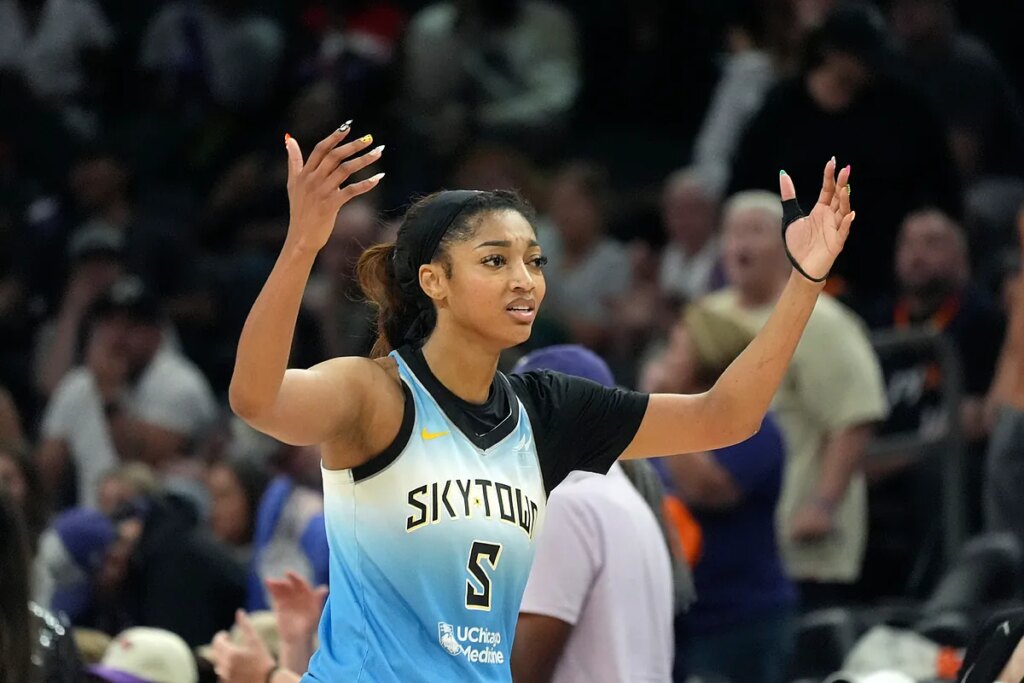Angel Reese has never been shy about expressing herself, but when it comes to the media, the Chicago Sky forward admits she’s often hesitant to speak at all.
In a recent episode of her “Unapologetically Angel” podcast, the WNBA star said that she sometimes prefers to accept league fines rather than take part in interviews that might misrepresent her words.
“Seriously, I’d rather take the fine sometimes rather than talking to the media because it always gets flipped,” Reese said during the episode released Thursday.
“For me, the media is really scary. That’s why I have never been on anybody else’s podcast. I’m scared to do stuff like that because I know how things could get flipped.”
Reese‘s honesty sheds light on a growing concern among athletes who feel increasingly vulnerable in the media environment that surrounds professional sports today.
For players like Reese, every press conference or postgame interview carries the risk of being turned into a headline that emphasizes controversy over context.
Finding her voice through her own platform
Reese‘s podcast has become her personal outlet to speak without interruption, a space where she controls how her story is told. Through “Unapologetically Angel,” she can share her experiences directly with fans, unfiltered by the editing process or the media’s interpretation.
It’s a shift that mirrors a broader movement among young athletes who are using their own platforms to shape public perception instead of relying on reporters to do it for them.
The 22-year-old has been in the public eye for years, dating back to her college days at LSU, where she helped lead the Tigers to a national championship and became one of the most recognizable figures in women’s basketball.
Her confidence and competitive edge made her a household name, but they also drew heavy criticism. Reese has often been labeled as “too outspoken” or “too confident,” and she’s spoken before about how exhausting it can be to navigate the scrutiny that comes with fame.
League rules require players to speak to the media after games, but fines for skipping those sessions are relatively minor compared to the emotional toll of feeling misrepresented. Reese‘s comments suggest that for her, the peace of mind that comes from staying silent outweighs the financial penalty that might come with it.
Read the full article here

